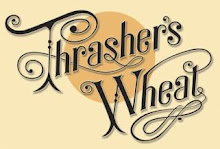"The most beautiful and rewarding dubbing session"


UPDATE: 5/22 - "Most remarkable reaction to any of my albums ever" - from a new Neil message scrolling at bottom of Neil's Garage.
Over on Neil's Garage, Shakey's official website, Neil has put together a timeline for recording "Living With War". He writes of the 12-hour recording session with the 100 voice choir:
"This is truly a day to remember. It is the most beautiful and rewarding dubbing session I have ever taken part in. Those singers are awe-inspiring."
On Rock Daily, a nice recap of all that has taken place over the past several weeks including the CNN interview where he was asked if he was concerned about being considered unpatriotic by people who might disagree with the album's sentiments.
"I'm not concerned about that in the least," Young replied. "I feel like I'm exercising my right of free speech, which is what our boys are fighting for the Iraqi people to have."
Also, news about the upcoming Freedom of Speech: CSNY 2006 Concert Tour. Graham Nash recently gave Rolling Stone a preview of what concertgoers can expect.
"There will be screens on either side of the stage with the lyrics playing," he revealed. "Neil wants people to be able to see the lyrics, to feel free to join in, so that our voices rise together."
And, likewise, Young says he's hoping that Living With War will inspire people to join together in expressing their opinions, regardless of their political differences.
Regarding the critical reaction from the left and right, Young responds to The Los Angeles Times in an on-line interview on his reason for laying bare the jabs as well as the plaudits his latest work has inspired:
"I found what people said about this music to be the real story, both pro and con.
I was surprised by the amount of positive reviews," Young wrote, "and the intensity of both the pros and cons."



































 Concert Review of the Moment
Concert Review of the Moment







![[EFC Blue Ribbon - Free Speech Online]](http://www.thrasherswheat.org/gifs/free-speech.gif)











 Submit Your Neil Links Now!
Submit Your Neil Links Now!























 Four Dead in Ohio
Four Dead in Ohio














